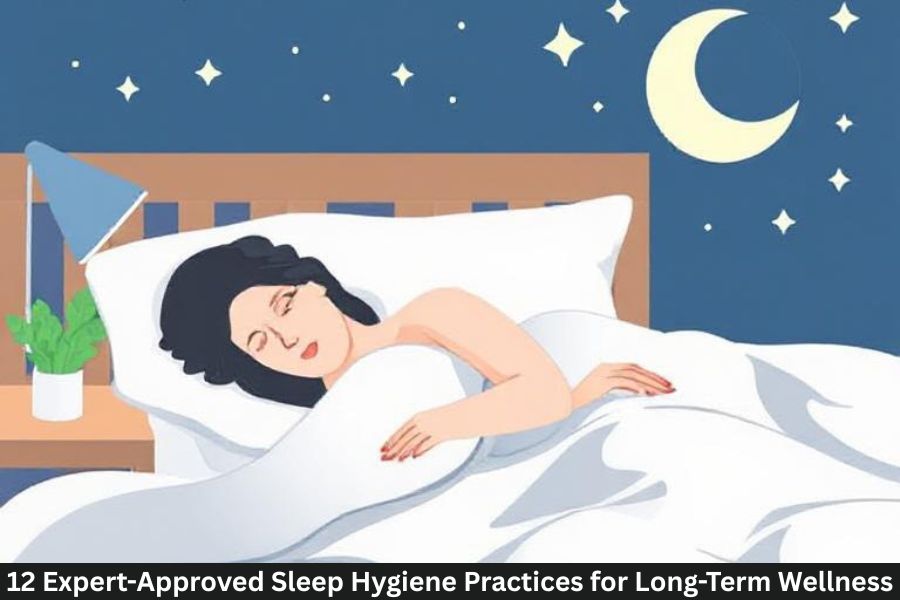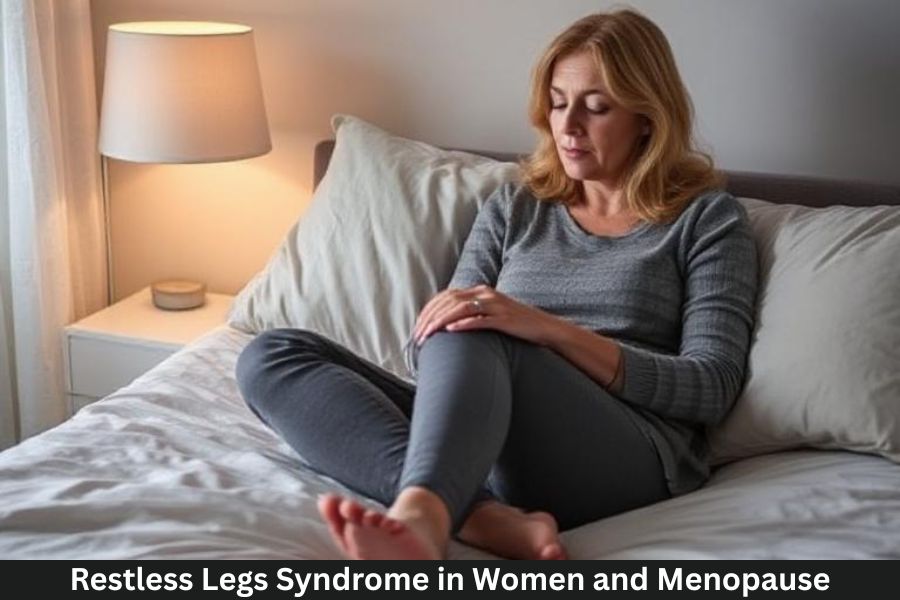Sleep hygiene refers to the daily habits and environmental factors that contribute to quality sleep. Just as brushing your teeth keeps your smile healthy, good sleep hygiene keeps your mind and body rejuvenated.
Poor sleep doesn’t just cause grogginess—it affects mood, immunity, metabolism, and long-term health. Studies show that consistent poor sleep increases the risk of anxiety, depression, obesity, and heart disease. Building proper sleep hygiene is one of the simplest ways to improve both physical and emotional well-being.
The Link Between Sleep and Overall Wellness
Sleep is your body’s natural recovery system. During deep sleep, your brain processes information, repairs cells, balances hormones, and strengthens memory. When sleep suffers, everything from your focus to your immune system takes a hit.
Think of it this way: sleep is like the body’s nightly tune-up—without it, even the best lifestyle habits fall short.
1. Set a Consistent Sleep Schedule
Your body loves rhythm. Going to bed and waking up at the same time every day helps regulate your circadian rhythm—the internal clock that manages sleep, energy, and alertness.
Avoid “social jet lag” (staying up late on weekends) and try to maintain a schedule, even on holidays. Over time, your body will naturally start to feel sleepy and wakeful at the right times.
2. Create a Relaxing Bedtime Routine
A peaceful pre-sleep routine signals your body that it’s time to wind down. Experts recommend activities like:
- Taking a warm bath
- Reading a light book
- Practicing deep breathing or meditation
- Listening to calming music
Avoid stressful activities, work emails, or arguments before bed—your mind needs calm, not chaos.
3. Optimize Your Bedroom for Better Sleep
Your bedroom should be a sleep sanctuary—cool, dark, and quiet.
- Keep the temperature between 60–67°F (15–19°C)
- Use blackout curtains or a sleep mask
- Try white noise machines or earplugs if needed
- Invest in a comfortable mattress and pillows
A clutter-free, peaceful environment helps your brain associate your room only with rest—not stress.
4. Limit Screen Time Before Bed
Screens emit blue light, which suppresses melatonin—the hormone responsible for making you sleepy. Avoid phones, TVs, and laptops at least one hour before bedtime.
If you must use devices, activate night mode or use blue-light-blocking glasses. Better yet, swap scrolling for journaling or gentle stretches.
5. Watch What You Eat and Drink
Late-night meals, caffeine, and alcohol can all sabotage sleep.
- Avoid caffeine after 2 p.m.
- Limit heavy dinners before bedtime
- Skip spicy or greasy foods that cause indigestion
- Don’t rely on alcohol—it disrupts REM sleep
Opt for sleep-friendly snacks like bananas, almonds, or chamomile tea instead.
6. Get Regular Physical Activity
Exercise boosts energy during the day and helps you sleep more soundly at night. Even 20–30 minutes of moderate activity—like walking, yoga, or cycling—can improve sleep quality.
However, avoid intense workouts too close to bedtime. They can raise your heart rate and delay sleep.
7. Manage Stress and Calm Your Mind
Racing thoughts and anxiety are major sleep thieves. Try mindfulness techniques before bed, such as:
- Box breathing (4-4-4-4 method)
- Meditation or prayer
- Writing a gratitude list
These habits lower cortisol levels and signal your body to relax.
8. Limit Naps During the Day
While short naps can be refreshing, long or late naps interfere with nighttime sleep. Keep naps under 30 minutes and avoid napping after 3 p.m. This helps preserve your natural sleep drive for the evening.
9. Use Light Exposure Wisely
Light is the most powerful signal to your body’s internal clock.
- Get sunlight exposure in the morning to boost alertness.
- Dim indoor lights in the evening to promote melatonin production.
- Avoid bright screens and overhead lights at night.
Think of sunlight as your “on” switch and darkness as your “off” button.
10. Listen to Your Body’s Natural Cues
Your body often tells you when it’s time to rest—don’t ignore it. Forcing yourself to stay awake can lead to restless nights. If you can’t sleep after 20 minutes, get up, stretch, or read something calming before trying again.
11. Track Your Sleep Patterns
Keeping a sleep journal helps identify habits or triggers that affect rest. Note your bedtime, wake time, caffeine intake, and screen use. You can also use apps or smartwatches for data insights, but remember—balance tracking with relaxation.
12. When to Seek Professional Help
If you’ve tried improving your habits but still struggle with sleep, you may have a sleep disorder such as insomnia, sleep apnea, or restless leg syndrome. Consult a sleep specialist or doctor. Proper diagnosis and treatment can make a world of difference.
Conclusion
Building healthy sleep hygiene doesn’t happen overnight—it’s a gradual process of consistency and care. By following these 12 expert-approved practices, you’ll create an environment and routine that support deep, rejuvenating sleep.
Remember, your bed should be a place of rest and renewal. Prioritize sleep, and you’ll find improvements in mood, productivity, and overall well-being.
Your best days start with your best nights.
FAQs
1. How long does it take to improve sleep hygiene?
It varies, but most people notice improvements within 2–3 weeks of consistent practice.
2. Can poor sleep affect my mental health?
Yes. Lack of sleep increases stress hormones and worsens conditions like anxiety and depression.
3. Is it okay to drink coffee in the evening?
No. Caffeine stays in your system for 6–8 hours and can delay sleep onset.
4. Do sleep supplements really work?
Some, like melatonin or magnesium, can help—but always consult your doctor before using them regularly.
5. What’s the ideal bedtime for adults?
Aim for 7–9 hours of sleep, adjusting your bedtime based on when you need to wake up.




I don’t think the title of your article matches the content lol. Just kidding, mainly because I had some doubts after reading the article.
Your article helped me a lot, is there any more related content? Thanks!
Thanks for sharing. I read many of your blog posts, cool, your blog is very good. https://www.binance.com/ar/register?ref=FIHEGIZ8
Your point of view caught my eye and was very interesting. Thanks. I have a question for you.
Your point of view caught my eye and was very interesting. Thanks. I have a question for you. https://www.binance.info/es-AR/register?ref=UT2YTZSU
I don’t think the title of your article matches the content lol. Just kidding, mainly because I had some doubts after reading the article. https://accounts.binance.info/ar-BH/register-person?ref=S5H7X3LP
Thanks for sharing. I read many of your blog posts, cool, your blog is very good. https://www.binance.info/ur/register?ref=SZSSS70P
Thanks for sharing. I read many of your blog posts, cool, your blog is very good.
I don’t think the title of your article matches the content lol. Just kidding, mainly because I had some doubts after reading the article.
Thanks for sharing. I read many of your blog posts, cool, your blog is very good. https://accounts.binance.com/bg/register-person?ref=V2H9AFPY
I don’t think the title of your article matches the content lol. Just kidding, mainly because I had some doubts after reading the article. https://accounts.binance.info/fr/register-person?ref=T7KCZASX
Can you be more specific about the content of your article? After reading it, I still have some doubts. Hope you can help me.
Thank you for your sharing. I am worried that I lack creative ideas. It is your article that makes me full of hope. Thank you. But, I have a question, can you help me? https://accounts.binance.info/en/register?ref=JHQQKNKN